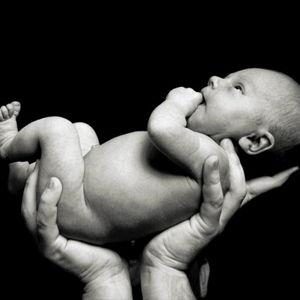Doctors manage Precious baby' pregnancies differently

There may be people thinking that all the advices for pregnancy are the same without considering the way the baby was conceived. But international study states that women who conceive by the help of assisted reproductive technologies (ART) are given different advice by the doctors than the people conceiving naturally.
Parent conceiving by ART have the same risks in pregnancy like the people conceiving the natural way but they are treated differently by doctors as mentioned in a study published in the Oxford Journal, Human Reproduction. Precious babies was the term used when the mothers of Art delivered the infants and this was usually by cesarean as the mothers were older. Dr. Yaniv Hanoch, associate professor of psychology at Plymouth University in the UK, says: "When people conceive after a long wait and after many courses of Art the pregnancy is more valuable to parents and the doctors, but there will be some medical advices for the pregnancies to remain consistent, particularly when some serious medical conditions are detected.” He also adds that, “there might be cases where the clinicians may get affected with the nature of pregnancy prior to the parents’ wishes determination"
The Centers for Disease Control and Prevention (CDC) states that more than 1% of babies in the US are conceived by this technology and the use of ART has doubled in the past decade. The CDC's 2011 ART Fertility Clinic Success Rates Report shows that by using ART pregnancies resulted in 47,818 live births and a total of 61,610 live born infants. But there is no guarantee that by using ART technology the pregnancy will be sure and the woman will deliver the baby.
The rates of the live births in the US using Art are:
- 30-35% for women under 35
- 25% for women aged 35 to 37
- 15-20% for women aged 38 to 40
- 6-10% for women over 40.
Endometrial scratching may show an increase in success rate of live births and continued research is promising. Researchers from Israel and the UK presented 163 obstetricians and gynecologists with a questionnaire based on a hypothetical case of a 37-year-old pregnant woman were done in order to understand if the doctors manage the Art pregnancies differently. The National Down Syndrome Society states that women aged 35 and over have a greater risk of Down syndrome which is a chromosomal condition affecting 400,000 people in the US. They calculate approximately that 1 in every 691 babies have this condition. It includes a test to remove the amniotic fluid from the womb called amniocentesis. This test may have miscarriages according to the Mayo Clinic between 1 in 300 and 1 in 500 if the test is done in the second trimester.
The study showed doctors being reluctant to advise the test when they were aware of the procedure of conception. If they agreed the risks of amniocentesis are insignificant, only 19.2% of clinicians advised this test, compared to 43.5% when the pregnancy was natural.
The researchers say the physicians are not resistant to the "precious baby" syndrome: "When a test might affect a pregnancy the loss of the pregnancy will seem greater so the doctors do not feel like recommending the procedure to avoid the smallest risk of endangering the pregnancy."








